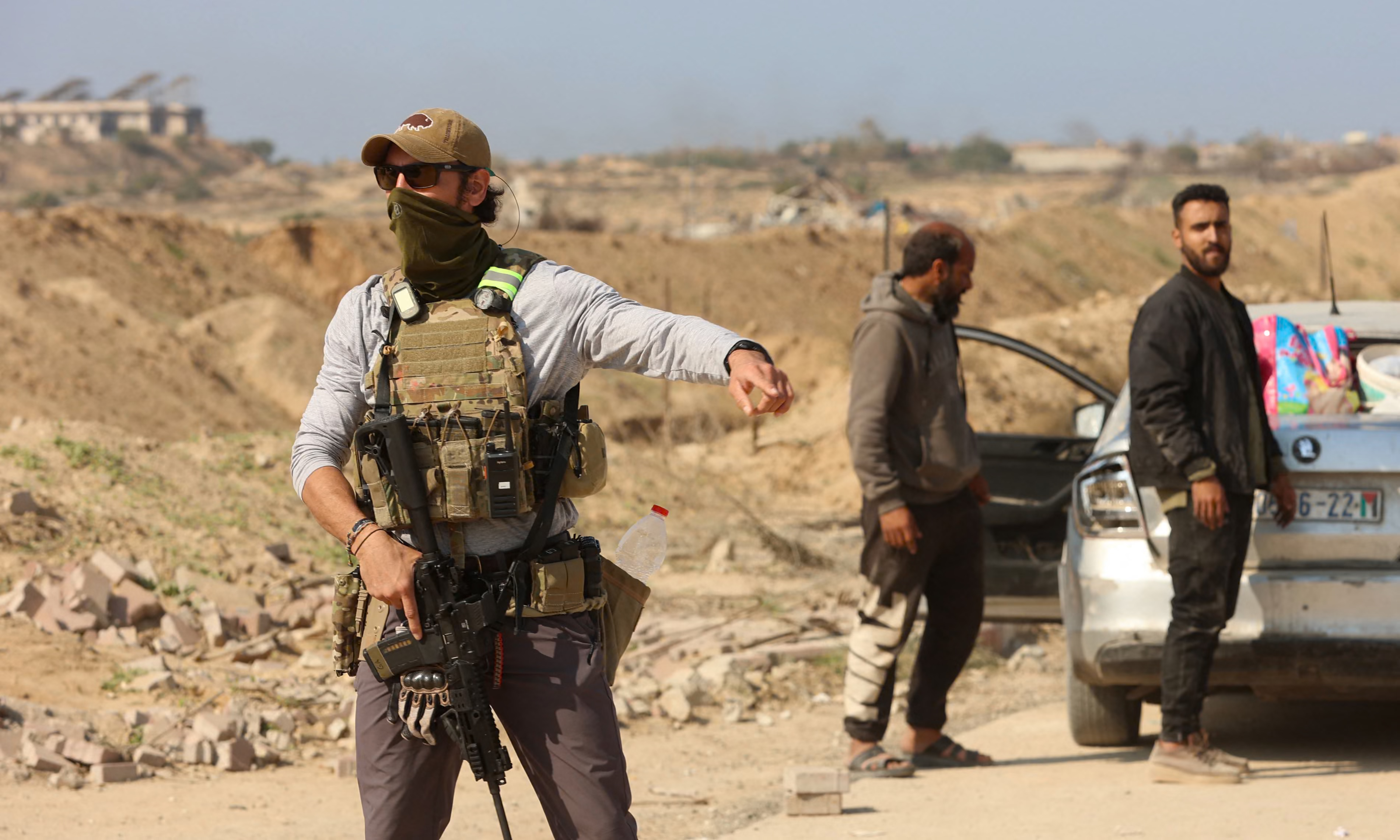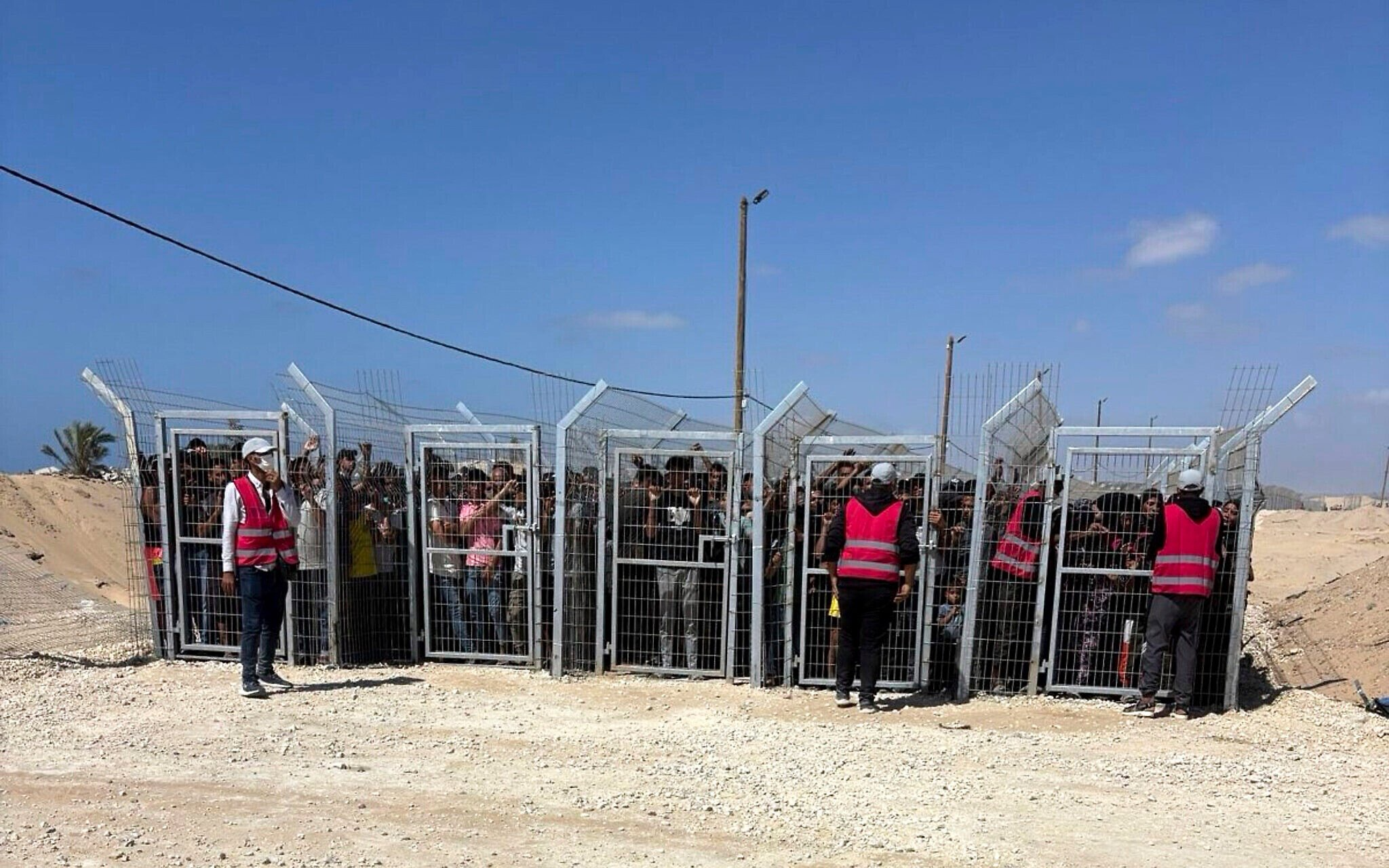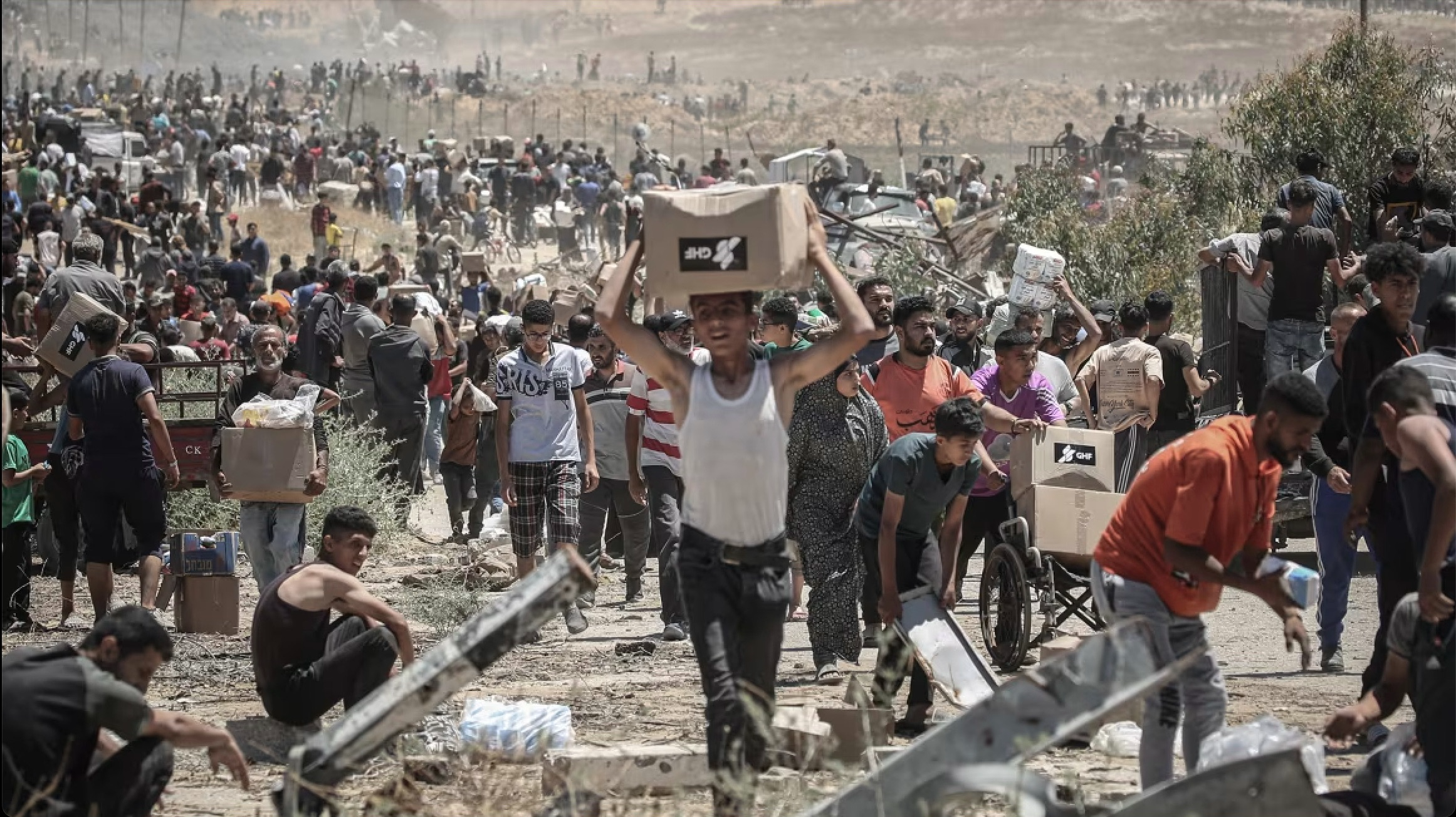The UN Human Rights Office has reported that, between the 27th of May and the 1st of August 2025, 859 Palestinians have been killed at Gaza Humanitarian Foundation (GHF) aid distribution sites. The GHF is a US and Israel backed private aid distribution company, however, despite its benevolent sounding name it has faced serious criticism, for its lack of accountability and potential violations of international humanitarian law.
A Dangerous Shift in Aid Distribution
In May 2025, Israel replaced 400 UN aid sites, accused of Hamas Infiltration, with four GHF sites. These sites are heavily armed and supported by two subcontracted American Security companies, namely UG solutions and primary provider, Safe Reach Solution (SRS). Both have been active in Gaza since January of 2025, however recent allegations by two ex-contractors working at GHF sites have brought about serious concerns. Talking to AP News, the two whistleblowers reported private contractors firing live rounds towards Palestinian civilians, causing at least one casualty. This follows numerous reports of civilian deaths at the hands of private contractors at GHF sites.

International Implications
Over 240 NGOs have signed a joint statement condemning Israel's private aid project and the initial executive director of the GHF has resigned due to fears that the organisation cannot adhere to humanitarian principles. Furthermore, as GHF subcontractors, private security operatives could qualify as mercenaries under UN conventions. If classified as mercenaries and found guilty of directly participating in hostilities, these contractors will lose the protections granted to prisoners of war under the Geneva Conventions, i.e. freedom from torture and indefinite internment.
Corporate Ties and Concealed Interests
These legal and ethical concerns become even more pressing in the context of accountability, which is severely hindered by the obscure and shadowy origin of the GHF and its Security partners. Phillip F. Reilly, ex-CIA operative and current CEO of SRS, emerges as a central figure in the foundation of the GHF. Reilly was Senior Vice President at Constellis, the corporate reincarnation of Blackwater, the security firm infamous for committing war crimes in Iraq. Four Blackwater operatives were convicted of killing 17 unarmed civilians in what became known as the Nisour Square massacre. Reilly admitted to the New York Times that, in 2024, he had conspired with key Israeli figures, regarding aid delivery in Gaza; Including Yotam Hacohen, an open proponent of privatising Gaza’s Aid and Security. Hacohen is a prominent figure within the Israeli Ministry of Defence unit overseeing civilian policy in Gaza and the West Bank, and maintains a close relationship with Netanyahu's Senior Military Adviser. These discussions marked the inception of the GHF, culminating in its incorporation in the US tax haven of Delaware in February 2025, helmed by Reilly.

The Closed Loop
Phil Reilly sits at the centre of a closed-loop system and the architect of Gaza's current aid distribution system, with links to every major stakeholder involved. He spent 8 years as a Senior Adviser at Boston Consulting Group (BCG), the same firm that confirmed that two unnamed employees provided pro bono support to Orbis operations in founding the GHF; a relationship the company has since condemned. As well as being tied to the client Orbis operations. Reilly is, or at least was, the Senior Vice President of Orbis, according to a 2021 Scouting America article and several other sources. Orbis is owned by McNally Capital, the same company that confirmed, to Reuters, has economically backed the foundation of Safe Reach Solutions, where Reilly is CEO. In fact, according to the New York Times, both the GHF and its subcontracted security provider were registered by the same lawyer. This structure exposes a closed-loop system riddled with cronyism and lack of financial transparency.
Reilly emerges as a central operator, financially propped up by McNally Capital, and enmeshed in Gaza's private aid structure. Together with the Israeli state, they have created a closed-loop market. Netanyahu's June 2025 Fox News admission that the Gazan aid architecture was "devised with the help of American firms", confirms this collusion. Using security issues to justify removing UN aid sites, the GHF has monopolised the market and created demand for private security firms. This demand is met by the SRS, a subcontractor tied to the same ownership as its employer the GHF. With both supply and demand controlled by the same beneficiaries, the $30 million in donations allocated to the GHF by the US government can be seamlessly funnelled through a closed loop system, allowing the GHF to effectively pay themselves; masquerading as humanitarians whilst cashing in on a crisis it created.

Future for Sale: Privatised Reconstruction Plans
The UN has urged that 'any sustainable future in Gaza requires political solutions', a warning that has been ignored as plans to expand the private market in Gaza beyond Aid distribution are already underway. In March 2025, a month before the GHF entered Gaza, the same BCG team that undertook the work to establish the GHF, developed a financial model designed to assess a range of post-war reconstruction scenarios. The Financial Times reported that this modeling culminated in a distressing calculation, that displacing Gazans would be $23,000 cheaper per person than providing support to them in Gaza during reconstruction. BCG claims the modelling was 'orchestrated and run secretly outside any BCG scope or approvals' and undertaken without a contract. However, the Financial Times disputes this, reporting that the modelling was commissioned by Israeli Backers of the GHF, again alluding to Israeli involvement in private sector ambitions.
This raises alarms not just for the present but the future of Palestine. An emerging private security market in Gaza where unaccountable private firms may be handed control under the guise of neutrality and humanitarianism, raises serious ethical questions. By earmarking the potential reconstruction for the private sector, states can avoid the political risks of direct involvement in a controversial conflict. In doing so, they bypass democratic governance systems, sideline established non-profits, and exclude Palestinian input, creating a profit driven model which is unaccountable to both the international community and the Palestinian people.
What Must Be Done
The emerging private security market in Gaza poses urgent legal and ethical threats. Private Contractors operate in legal grey areas, often beyond the reach of humanitarian oversight. The international community cannot stand by while Gaza's present and future is shaped by profit driven motives, the international community must demand transparency and any violation of international humanitarian law must be held to account. All future reconstruction efforts must prioritise Palestinian agency and be guided by the principles of humanitarian relief, not by those who stand to gain from instability or the marginalisation of the Palestinian people.
 Dylan Clarke-stock
Dylan Clarke-stock